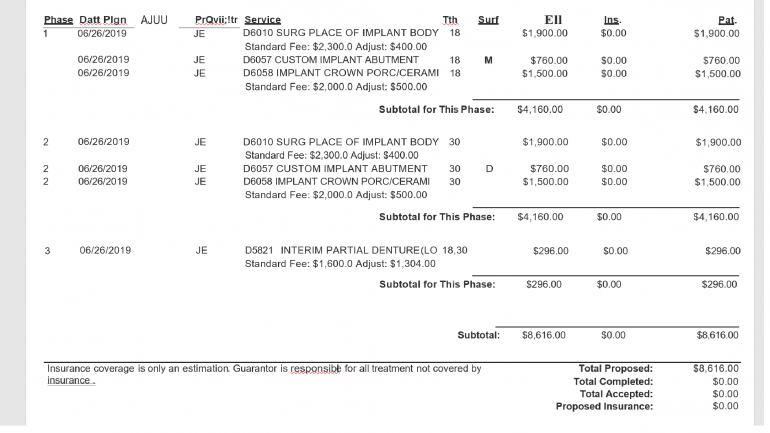
Dental Code D1310: Nutritional counseling for control of dental disease
Dental Code D1310 represents a valuable dental service that focuses on nutritional counseling for the control of dental disease. This specific code allows dental professionals to document and bill for the provision of dietary guidance and recommendations to patients. Nutritional counseling plays a crucial role in maintaining oral health and preventing dental problems.
What does Dental Code D1310 mean?
Dental Code D1310 refers to the process of nutritional counseling provided by dentists or dental hygienists to educate patients about the relationship between nutrition and oral health. This counseling aims to offer guidance on appropriate dietary choices and habits that can help prevent dental diseases such as tooth decay and gum disease. By understanding the impact of diet on oral health, patients can make informed decisions about their diet to maintain a healthy mouth.
Initial Assessment and Evaluation
The first step in the nutritional counseling process is the initial assessment and evaluation. During this stage, the dental professional gathers relevant information about the patient's medical history, current oral health status, and dietary habits. This information helps in understanding the individual's unique needs and tailoring the nutritional counseling accordingly.
The dental professional may ask questions about the patient's typical dietary patterns, including the frequency and types of foods consumed. They may also inquire about any specific concerns or challenges the patient faces related to their oral health or dietary choices. Understanding these factors allows the dental professional to provide personalized guidance and recommendations.
Education on Nutritional Basics
In this step, the dental professional provides an in-depth education on the nutritional basics that are essential for maintaining optimal oral health. They explain how certain nutrients play a vital role in the health of teeth and gums.
Layman's Terms Explanation: The dentist or dental hygienist will teach you about the different nutrients that are important for your oral health. For example, calcium helps make your teeth strong, vitamin D helps your body use calcium properly, and vitamin C keeps your gums healthy. They will also explain that you can find these nutrients in foods like milk, cheese, fish, fruits, and vegetables.
Dietary Recommendations for Dental Health
Based on the patient's specific needs and oral health conditions, the dental professional provides personalized dietary recommendations. These recommendations aim to improve oral health and prevent dental diseases. Here are some common dietary recommendations:
Limit Sugary and Acidic Foods: Consuming excessive amounts of sugary snacks, candies, and beverages can contribute to tooth decay. The dental professional may suggest reducing the intake of these foods and opting for healthier alternatives. Acidic foods and drinks like citrus fruits and carbonated beverages can erode tooth enamel, so it's important to consume them in moderation.
Emphasize Nutrient-Rich Foods: The dental professional may advise increasing the consumption of foods that promote oral health. Fruits and vegetables high in fiber stimulate saliva production, which helps neutralize acids and wash away food particles. Dairy products like milk and cheese are excellent sources of calcium, which strengthens teeth.
Hydration: Drinking plenty of water throughout the day is essential for maintaining oral health. Water helps rinse away food particles and keeps the mouth hydrated, preventing dry mouth and reducing the risk of tooth decay.
The dental professional will explain the importance of maintaining a proper oral hygiene routine, including brushing twice a day with fluoride toothpaste, flossing daily, and using mouthwashes as recommended. These practices, combined with a healthy diet, maximize oral health benefits.
Oral Health Promotion Strategies
In this step, the dental professional discusses additional strategies to promote oral health apart from dietary modifications. These strategies include:
Proper Oral Hygiene Practices: The dental professional provides guidance on proper brushing techniques, emphasizing the importance of brushing for two minutes twice a day. They may also demonstrate the correct way to floss effectively to remove plaque and food debris from between the teeth.
Regular Dental Check-ups: The dental professional recommends regular dental check-ups and professional cleanings. Regular visits allow for the early detection and prevention of potential dental issues. The dentist or hygienist can assess the patient's oral healthstatus, identify any areas of concern, and provide appropriate treatments or interventions.
Oral Health Products: The dental professional may recommend specific oral health products tailored to the patient's needs. This could include toothbrushes with soft bristles, fluoride toothpaste, and mouthwashes that help maintain oral hygiene and combat dental problems.
Dental Code D1310 focuses on providing nutritional counseling for the control of dental disease. This code enables dental professionals to educate patients about the crucial link between nutrition and oral health. By understanding the impact of diet on their oral well-being, individuals can make informed choices that contribute to a healthy mouth.
The procedure involves an initial assessment and evaluation to gather information about the patient's medical history, oral health status, and dietary habits. The dental professional then educates the patient about the nutritional basics, emphasizing the importance of nutrients such as calcium, vitamin D, and vitamin C in maintaining oral health.
Dr. BestPrice - Where affordability meets dental excellence! Compare costs effortlessly, make wise decisions, and champion your oral well-being without the financial hassle.
